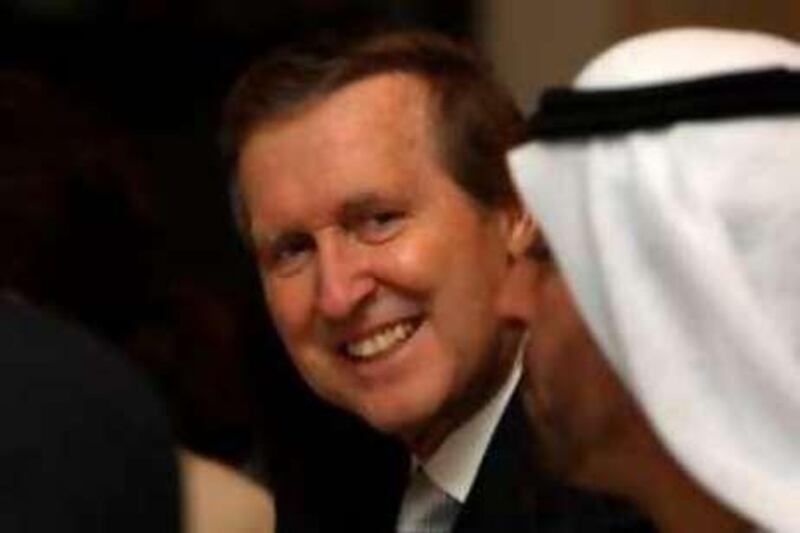Economic growth in the Gulf will depend on the ability of the US to help keep the region stable, William Cohen, the former US secretary of defense, told a gathering in Dubai today. Before the Iraq war began, the US was an important force for maintaining peace in the Gulf and it should act to regain that position, he said. "Stability is critical for business. If you don't have stability you will have capital taking flight... capital is a coward," he said at an assembly of international businessmen hosted by the Dubai Chamber of Commerce and Industry and the US-UAE Business Council. Although Mr Cohen is a Republican, he served as the secretary of defense under the Democratic president Bill Clinton, from 1997 to 2001. Today, he criticised the Republican President George W Bush for pursuing an international policy during his first term that alienated many of America's allies and lessened its international clout. "Whoever is elected, be it John McCain or Barack Obama, you're going to see people in the next administration reaching out with a much more engaging attitude," he said. "We have seen a diminution of our image and our influence in many parts of the world, but we are still the greatest force for stability in the world because we are forward deployed throughout most of the world." Mr Cohen predicted that both presidential candidates would have to pursue more or less the same policy in Iraq, despite their claims to differ on the matter. "You have to look beneath the rhetoric," he said, explaining that either candidate would have to keep troops in Iraq for some time to avoid creating a dangerous power vacuum. The Iraq war has "been an element for great instability, and that is something that everyone in the region is worried about," he said. He has so far declined to endorse either candidate. Pakistan, which had suffered from increasing economic and political instability in recent months, could prove one of the "most difficult issues" for the US during the next four years, Mr Cohen said. If the situation continued to deteriorate in the country, political instability in neighbouring Afghanistan could spill over into Pakistan, potentially bringing the country dangerously closer to conflict with India. The US should act to try to forestall international conflict "not out of the charity of our hearts but out of our interest", since economic growth elsewhere benefited everyone, he said. tpantin@thenational.ae
Gulf growth 'depends on stability'
The former US secretary of defence says continued economic growth in the Gulf will depend on the ability of the US to help keep the region stable.

Editor's picks
More from the national





